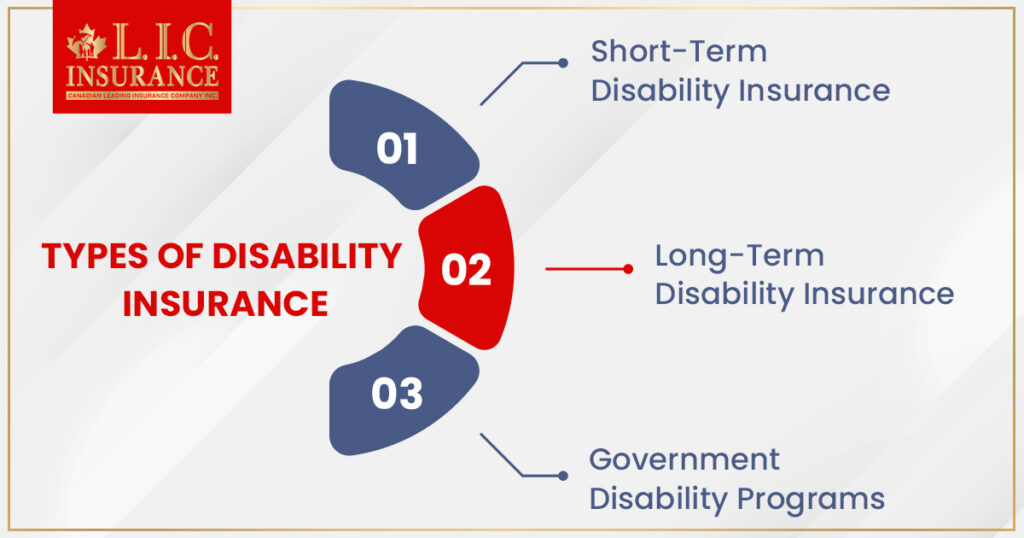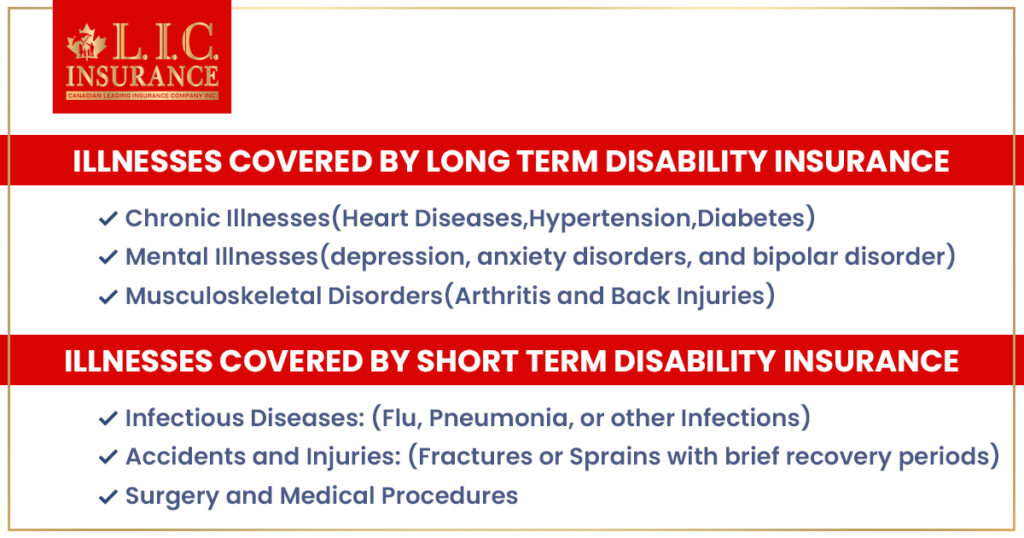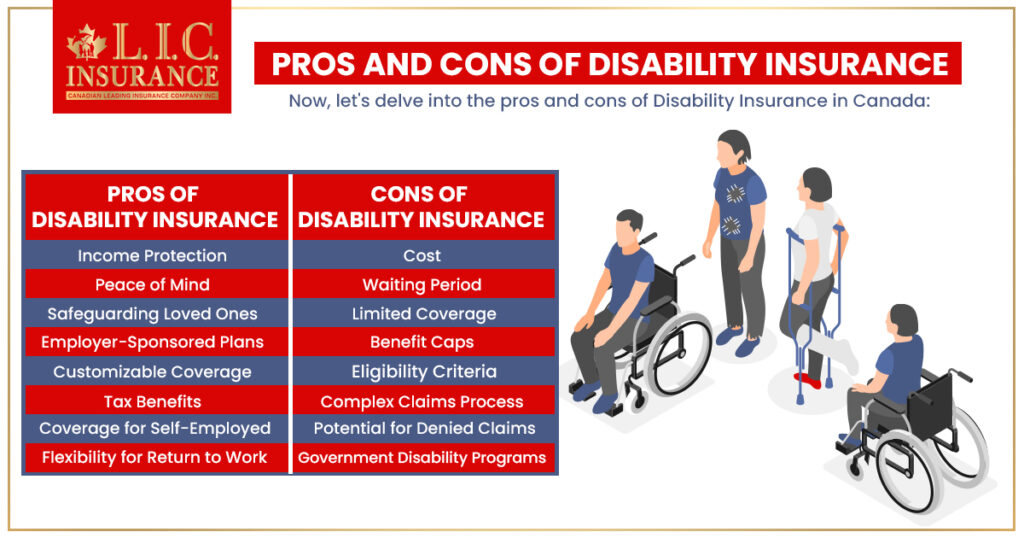
October 24, 2023, Canadian LIC, 7 Mins
Disability insurance in Canada plays a critical role in providing financial security for individuals who are unable to work due to illness, injury, or disability. This comprehensive guide will explore the pros and cons of Disability Insurance in Canada, helping you make an informed decision about whether this type of coverage is right for you.
Disability Insurance, often referred to as Disability Income Insurance or Income Replacement Insurance, is designed to provide individuals with a source of income if they become unable to work due to a disability. In Canada, Disability Insurance comes in various forms, including employer-sponsored group plans, individual policies, and government programs such as the Canada Pension Plan Disability (CPP-D).
Read More- Need of Disability Insurance here


Read More- Disability Insurance and its types here

Now, let’s delve into the pros and cons of Disability Insurance in Canada:
| Pros of Disability Insurance | Cons of Disability Insurance |
|---|---|
| 1. Income Protection | 1. Cost |
| 2. Peace of Mind | 2. Waiting Period |
| 3. Safeguarding Loved Ones | 3. Limited Coverage |
| 4. Employer-Sponsored Plans | 4. Benefit Caps |
| 5. Customizable Coverage | 5. Eligibility Criteria |
| 6. Tax Benefits | 6. Complex Claims Process |
| 7. Coverage for Self-Employed | 7. Potential for Denied Claims |
| 8. Flexibility for Return to Work | 8. Government Disability Programs |
Pro: Disability Insurance ensures that you continue to receive a portion of your income if you become unable to work due to a disability. This financial support can help you cover essential expenses, such as housing, food, and healthcare, allowing you to maintain your standard of living.
Pro: Knowing that you have Disability Insurance provides peace of mind. You don’t have to worry about how you’ll manage financially if you’re unable to work due to an unexpected illness or injury.
Pro: Disability Insurance not only protects you but also your family. It ensures that you can continue to meet your financial obligations, including providing for your loved ones.
Pro: Many employers offer Disability Insurance as part of their benefits package. This coverage is often more affordable than individual policies and can provide a financial safety net for employees.
Pro: Individual Disability Insurance policies allow you to tailor your coverage to meet your specific needs. You can choose the benefit amount, waiting period (the time before benefits start), and other policy features.
Pro: In some cases, Disability Insurance premiums may be tax-deductible. Additionally, the benefits received under a Disability Insurance policy are typically tax-free if you paid the premiums with after-tax dollars.
Pro: Self-employed individuals often lack the benefits provided by employers. Disability Insurance allows them to protect their income and business in case of a disability.
Pro: Disability Insurance policies often include provisions for partial disability or a gradual return to work. This can be beneficial if you’re recovering from a disability and want to ease back into the workforce.
Con: Disability Insurance premiums can be relatively expensive, especially for comprehensive coverage. The cost depends on factors such as your age, occupation, health, and the level of coverage.
Con: Most Disability Insurance policies have a waiting period before benefits kick in. During this waiting period, you must cover your own expenses, which can be challenging if you have no savings or other forms of income.
Con: Disability Insurance policies may have exclusions or limitations. Some policies may not cover certain pre-existing conditions, self-inflicted injuries, or disabilities caused by risky activities.
Con: Some Disability Insurance policies impose benefit caps, meaning there is a maximum limit on the monthly or annual benefits you can receive. This cap may not fully replace your lost income if you had a high-paying job.
Con: Eligibility for Disability Insurance can be stringent, especially for individuals with pre-existing medical conditions. You may be denied coverage or face higher premiums if you have a history of health issues.
Con: Filing a Disability Insurance claim can be a complex process. Insurers may request extensive documentation and medical records, and the claims process can be lengthy and challenging.
Con: There’s a risk that your Disability Insurance claim may be denied. Insurance companies may dispute your disability status, leading to disputes and legal challenges.
Con: Depending solely on government disability programs, such as CPP-D, may not provide sufficient income replacement, and the eligibility criteria can be strict.
Deciding whether to invest in Disability Insurance in Canada requires careful consideration of your financial situation, occupation, and personal needs. Here are some key factors to help you make an informed decision:
Disability Insurance in Canada offers both advantages and disadvantages, and the decision to purchase it should align with your individual circumstances and priorities. Carefully assess your financial situation, occupation, and personal needs to determine whether Disability Insurance is a prudent investment for you or not.
Read More- Disability Insurance here
Disability Insurance in Canada provides financial protection to individuals who become unable to work due to illness, injury, or disability. It offers income replacement in the form of regular benefit payments.
Disability Insurance provides income protection, peace of mind, and financial security in case of a disability. It safeguards your standard of living and supports your loved ones.
Disability Insurance premiums paid with after-tax dollars are generally not tax-deductible. However, tax rules can vary, and it’s advisable to consult with a tax professional for specific guidance.
Canada offers various types of Disability Insurance, including short-term disability, long-term disability, employer-sponsored group plans, individual policies, and government programs like CPP-D.
Yes, most Disability Insurance policies have waiting periods, also known as elimination periods. During this time, you must cover your own expenses before benefits become payable.
Yes, Disability Insurance claims can be denied or disputed by insurers. This can lead to disputes, appeals, and potentially legal challenges.
Disability Insurance benefits are generally considered tax-free if the premiums were paid with after-tax dollars. However, tax rules can vary, and certain circumstances may affect the tax treatment of benefits.
Yes, self-employed individuals can purchase Disability Insurance to protect their income and business in the event of a disability.
Factors to consider include your financial situation, occupation, employer benefits, policy options (such as waiting periods and benefit periods), and any policy exclusions or limitations.
To ensure that your policy aligns with your needs, consult with an insurance expert who can provide personalized guidance based on your unique circumstances.
These FAQs provide essential information about Disability Insurance in Canada, helping individuals make informed decisions about their coverage. However, individuals are encouraged to seek professional advice through Canadian LIC– insurance experts in Canada and thoroughly review policy details when considering Disability Insurance.
The above information is only meant to be informative. It comes from Canadian LIC's own opinions, which can change at any time. This material is not meant to be financial or legal advice, and it should not be interpreted as such. If someone decides to act on the information on this page, Canadian LIC is not responsible for what happens. Every attempt is made to provide accurate and up-to-date information on Canadian LIC. Some of the terms, conditions, limitations, exclusions, termination, and other parts of the policies mentioned above may not be included, which may be important to the policy choice. For full details, please refer to the actual policy documents. If there is any disagreement, the language in the actual policy documents will be used. All rights reserved.
Please let us know if there is anything that should be updated, removed, or corrected from this article. Send an email to [email protected] or [email protected]